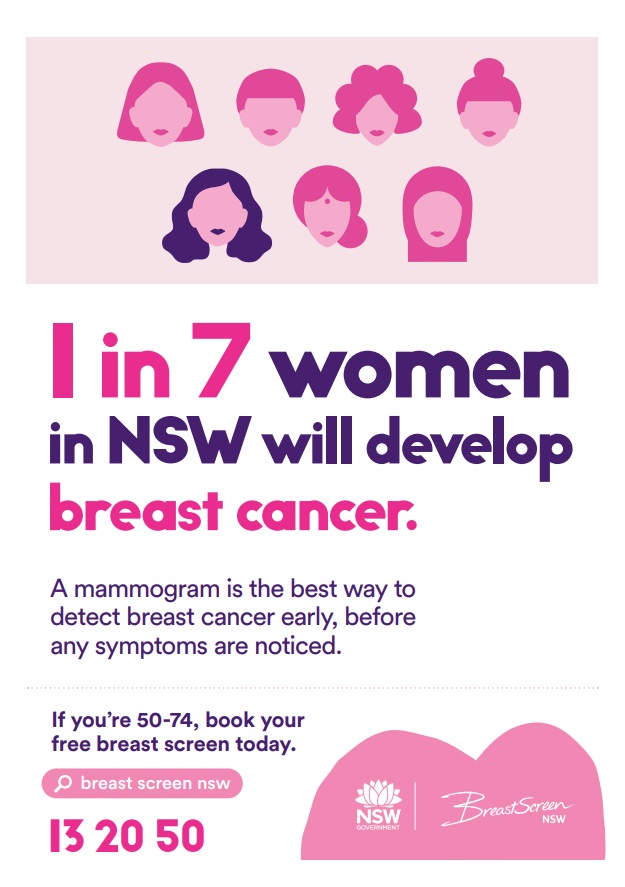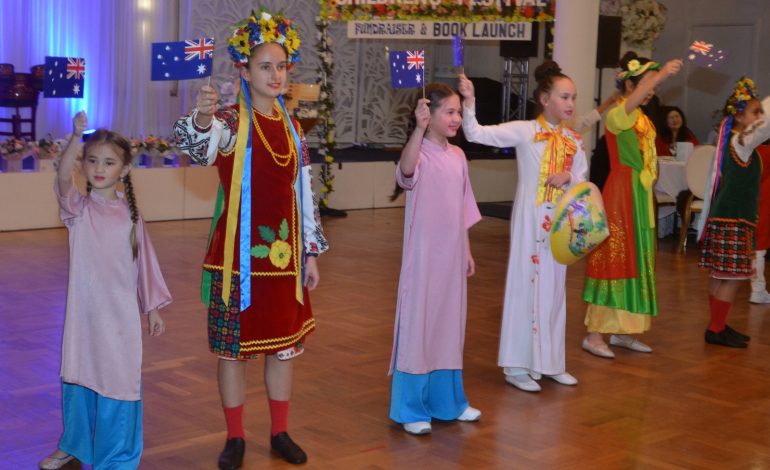October marks Breast Cancer Awareness Month, a critical time to raise awareness about breast cancer, the most common cancer globally. In New South Wales (NSW), alarming statistics reveal that nearly 50% (48.2%) of women aged 50-74 are overdue for their vital two-yearly breast screening. With over 6,500 expected diagnoses and approximately 1,000 lives projected to be lost to breast cancer in 2024 in NSW alone, now is the time to take action.

The Importance of Early Detection
Professor Tracey O’Brien AM, the NSW Chief Cancer Officer and CEO of the Cancer Institute NSW, emphasizes the importance of early detection. “For women aged 50-74, a breast screen every two years remains the best method for identifying breast cancer early, often before symptoms are apparent,” she states. Early detection leads to a five-year survival rate of 98%, significantly improving treatment outcomes and reducing the need for invasive procedures such as mastectomies.
“It’s easy to put self-care on the back burner,” Professor O’Brien adds. “But breast cancer doesn’t wait. I urge all eligible women to prioritize their health. A screening takes just 20 minutes, and you don’t need a doctor’s referral.”
Be A Friend, Tell A Friend
This Breast Cancer Awareness Month, BreastScreen NSW encourages women to engage in the “Be A Friend, Tell A Friend” campaign. This initiative promotes word-of-mouth and social media sharing about the importance of regular mammograms among friends, family, and colleagues. Sue Advani, President of SEVA International and a breast cancer survivor, reinforces this message. “Checking in with friends and family about their screening appointments could save a life,” she says.
Addressing Barriers in Multicultural Communities
Access to cancer screening services can be particularly challenging for women in culturally and linguistically diverse (CALD) communities. Barriers such as language, health literacy, and cultural stigma can hinder timely screenings. To combat this, BreastScreen NSW has launched an improved website featuring resources in 26 languages, aiming to enhance accessibility for at-risk populations.

Recommendations for Breast Cancer Screening
Women aged 50-74 are encouraged to schedule a breast screen every two years. Those who notice any changes in their breasts, such as lumps, should consult their doctor immediately. BreastScreen NSW offers free health services for women from diverse cultures, with interpreters available through the Translating and Interpreting Service (TIS) at 13 14 50.
To make an appointment at a local BreastScreen NSW clinic or mobile van, call 13 20 50 or visit BreastScreen NSW.
Global Perspective on Breast Cancer
Breast cancer claims over 650,000 lives worldwide each year, with survival rates significantly influenced by socioeconomic factors. In high-income countries, survival rates can be as high as 90%, while in sub-Saharan Africa, they drop below 40%. Recent studies have highlighted a staggering 247% increase in breast cancer incidence in sub-Saharan Africa from 1990 to 2019, with Nigeria recording the highest rates.
Challenges in Low-Income Regions
Women in low- and middle-income countries face significant hurdles in accessing treatment, often seeking help only when the disease is advanced. Medical professionals emphasize the need for early detection to improve survival rates. Cultural stigma, inadequate healthcare resources, and logistical challenges further complicate access to timely treatment.
As we observe Breast Cancer Awareness Month, it is vital to not only advocate for early screening and detection but also to support women globally in overcoming the barriers they face. Together, through awareness and action, we can make strides in combating breast cancer and saving lives.








